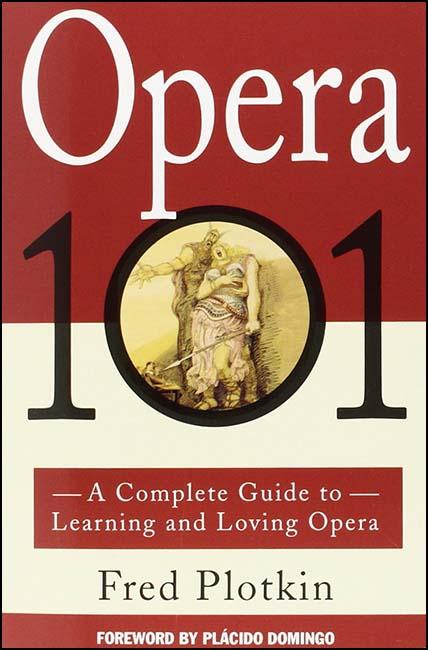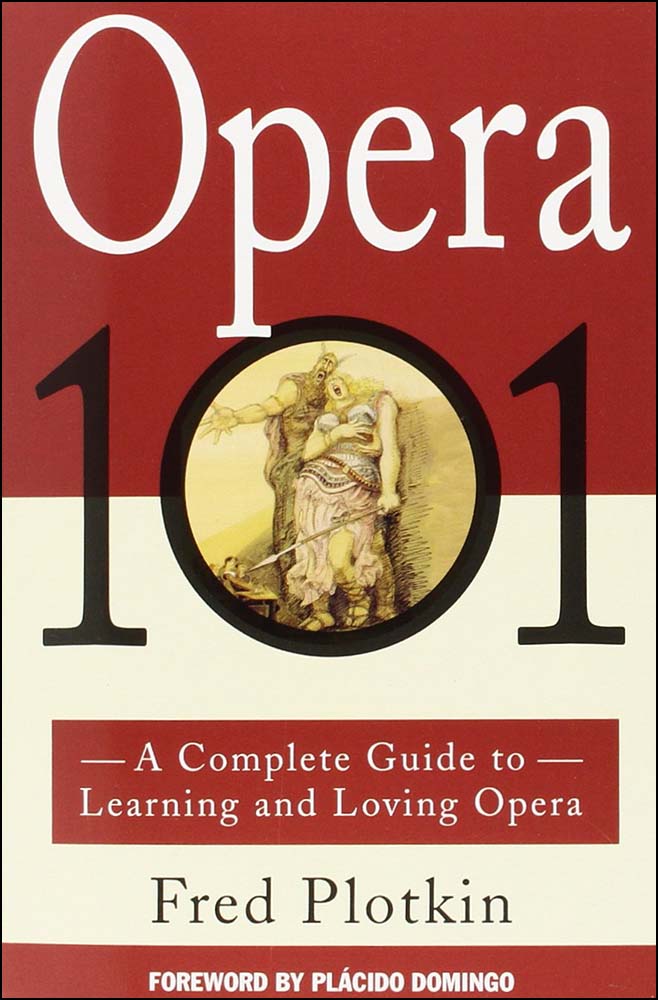 Fred Plotkin has worked at New York’s Metropolitan Opera and taught the artform all over the world. In the introduction to this book he states that the best way to learn about opera is to be introduced to it by a knowledgeable friend and his book aims to be that friend. A sentiment we wholeheartedly agree with at Opera For All – it’s something we aspire to as well.
Fred Plotkin has worked at New York’s Metropolitan Opera and taught the artform all over the world. In the introduction to this book he states that the best way to learn about opera is to be introduced to it by a knowledgeable friend and his book aims to be that friend. A sentiment we wholeheartedly agree with at Opera For All – it’s something we aspire to as well.
Plotkin is clearly very enthusiastic and knowledgeable about opera and communicates this well in the book. He comes across as genuinely wanting to share this love and understanding with his readers, as well as having the writing skills to do so.
He starts with a necessarily short but accessible history of opera. This is followed with advice on getting to know opera better and attending your first performance. Some of this might seem somewhat basic, but to the complete novice this is useful information – just the sort of thing you might want to ask about but feel a bit, well, embarrassed to do so.
At times the tone becomes a little condescending and even snobbish. Plotkin reminds readers to use the toilet before a performance. It comes as no surprise that he’s not a fan of supertitles (or surtitles – English translations of what’s being sung projected onto screens above the stage), which he feels ruin the overall experience. He can be rather waspish, especially when talking about ‘scalpers’ selling tickets illegally or standees wrongly occupying seats they haven’t paid for.
Written 24 years ago, some of the book seems very old fashioned. The author talks of CDs as state of the art and mentions the advent of ‘videocassette recorders’. The entire section on buying tickets could today be replaced with ‘visit the venue’s website’. How quickly technology becomes obsolete – 24 years from now will digital downloads and streaming seem just as quaint?
I also think his insistence that you have to prepare for an opera is unnecessary and even counterproductive. You can read a synopsis, study the libretto, learn about the opera’s history and so on. But you don’t have to, and there is something to be said for approaching an opera ‘blind’ and learning more about it afterwards if you’re moved to. The idea that attending an opera performance requires preparation is likely to put some newcomers off, which is the last thing we want.
But the real value of the book is in its introductions to 11 well-known operas. No such list can be definitive; ask 11 different opera fans and you’d get 11 different lists. But Plotkin justifies his choices well and they will provide a thorough grounding in the artform. He details which recordings to listen to and suggests buying the CD for each, which would be quite the outlay. Luckily they’re available today via free streaming services. You can also find the libretti for free online.
Plotkin devotes a chapter to each opera, discussing the music, language, historical context, themes, composer and more. Again, I feel his insistence on reading the libretto, studying the opera while listening to it, is unnecessary, but doing so will certainly add to your understanding. In fact you might want to try an experiment. Read the libretto for Rigoletto’s (Verdi, 1851) first act, then read Plotkin’s text and listen to the act. For the second and third acts, just read the book and listen. Which experience do you prefer? Or maybe you enjoyed both but for different reasons.
Plotkin provides a thorough treatment of each of his chosen operas, giving an excellent introduction to the themes, music and history of the artform. The book isn’t without its faults, but it will provide the newcomer with everything they need to approach opera.

More info
Tech spec
• Opera 101: A Complete Guide to Learning and Loving Opera by Fred Plotkin (Hyperion, 1994)
• 494 pages; paperback; £7.99
• ISBN: 978-0786880256
• Buy from Amazon
Please note the above is an affiliate link. If you purchase the book via this link, Opera For All will receive a small commission.
Verdict
Plotkin’s book will provide a thorough grounding in opera while introducing the reader to some very fine music.
